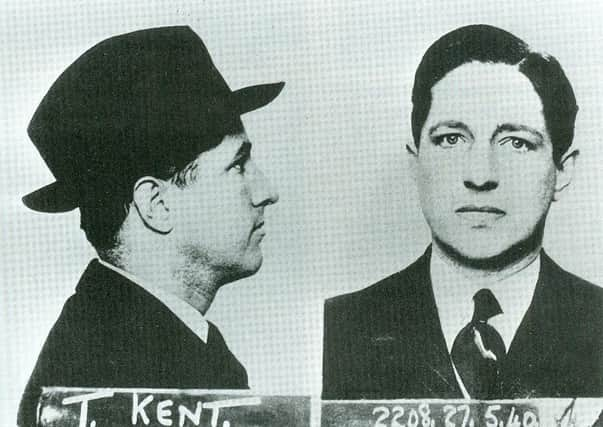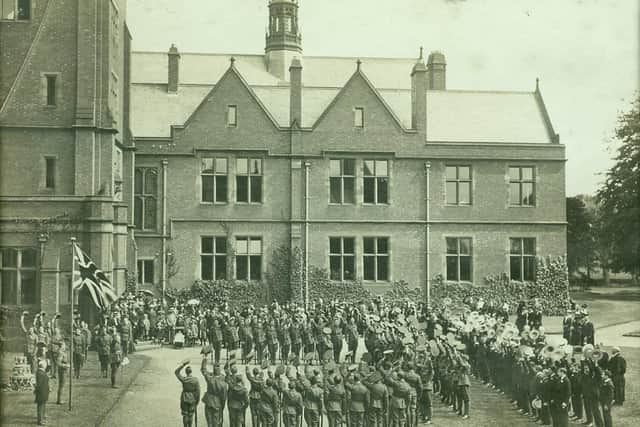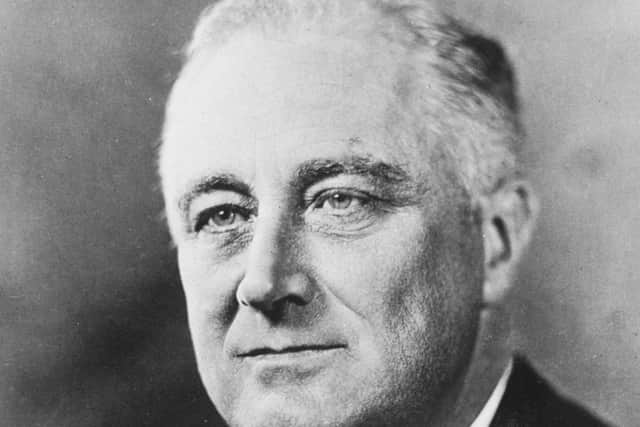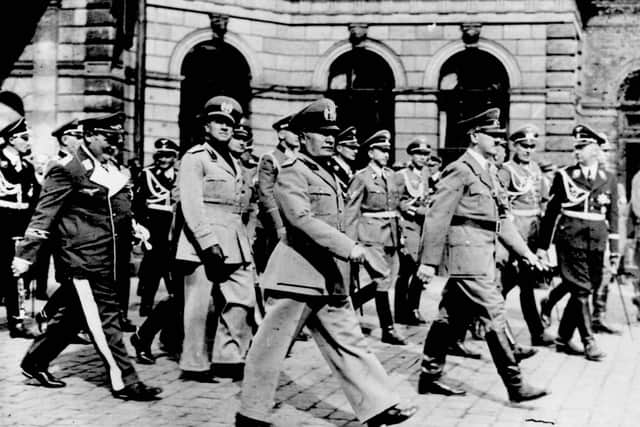The Northern Ireland link of a spy who enraged President Roosevelt and delayed Mussoloni’s entry into World War Two


As he stepped on to American soil in December 1945 after serving five years of a seven-year conviction for treason, Tyler Gatewood Kent bore an uncanny resemblance to his contemporary Ian Fleming.
Neither was the similarity purely physical, as Kent emulated the creator of James Bond in secret intelligence matters, dapper dressing, expensive habits, to some extent as a writer, and most certainly as a womaniser.
Advertisement
Hide AdAdvertisement
Hide AdKent’s father, William Patton Kent, was employed in the American Consular service.


He was related to General George S Patton and, by descent, to President John Tyler (1841-1845) and Davy Crockett.
He died in March 1936 but lived to see his son follow in his footsteps.
In February 1934 Tyler Kent was employed as a clerk in the American consulate in Moscow. On October 5 1939, after Britain’s declaration of war on Germany, he was transferred to a clerical post at the American Embassy in London.
Advertisement
Hide AdAdvertisement
Hide AdThe American ambassador was Joseph (‘Joe’) Kennedy, father of the future president, who was covertly ill-disposed towards Britain and opposed to a war with Germany.


He was anti-semitic and privately expressed admiration for Hitler. It was, therefore, ultimately not without irony that Kent fully accorded with these opinions.
America was to remain neutral until the bombing of Pearl Harbour in December 1941, but following Britain’s declaration of hostilities against Germany in September 1939, Roosevelt was in secret communication with the First Lord of the Admiralty, Winston Churchill, offering potential assistance in the form of ‘a loan of forty or fifty old destroyers, several hundred aircraft, anti-aircraft guns and ammunition’ – all of which was conducted in the form of coded telegrams.
As a cipher clerk, Kent coded all outgoing messages and decoded incoming material, and was privy to all this subterranean diplomatic correspondence, which merely served to kindle and inflame his anti-British persuasion.
Advertisement
Hide AdAdvertisement
Hide AdKent made copies of 1,929 secret messages between Churchill and Roosevelt — for transmission to Berlin!


On 22 May 1939, Germany and Italy had signed what became known as the Pact of Steel which stipulated that if either of them found itself at war the other ‘will immediately step to its side as an ally and will support it with all its military might on land, at sea and in the air’.
Once Britain made its fateful decision, there was an expectation that Mussolini would fulfil the terms.
That he did not has led some to believe that he equivocated to assess who was more likely to win the conflict. The real reason was the activity of Tyler Gatewood Kent!
Advertisement
Hide AdAdvertisement
Hide AdHis hostility towards Britain, and his desire to keep America out of the war, persuaded Kent to pass all the Churchill-Roosevelt dialogue to Berlin — via the conduit of the Italian Embassy in London.
It was only when this invaluable source of intelligence evaporated that, on June 10 1940, Mussolini declared war against Britain.
That river of information had finally dried up with Kent’s arrest on May 20 1940 (80 years ago today) at his apartment at 47 Gloucester Place. One of his mistresses, Irene Danichewsky, was with him.
The cipher clerk expected to receive diplomatic immunity and be returned to America where he might be able to speak freely.
Advertisement
Hide AdAdvertisement
Hide AdIn the event, the ambassador — whose opinions accorded with those of his subordinate — was outraged by Kent’s actions, particularly as the material now revealed his own persuasion.
Kennedy, who described Kent as ‘the traitorous bastard’, approved the arrest.
Back in Washington by 22 October 1940, Kennedy found his own career at an end as Roosevelt raged: “I never want to see that son of a bitch again.”
Kent’s trial began the following day in England and, to his chagrin it was held in camera. He was sentenced to seven years’ imprisonment which was served principally at Camp Hill Barracks on the Isle of Wight.
Advertisement
Hide AdAdvertisement
Hide AdIrene Danischewsky — who was soon to become an aunt of Helen Mirren (born 1945) — visited him loyally once or twice a month until his release two years early at the end of the war, when he was returned to America.
On 4 July 1946 Kent married multi-millionairess Clara Hyatt, heiress to a fortune made with Carter’s Little Liver Pills.
Over the next quarter century or so, Tyler Gatewood Kent was able to live the excessive high life he could only have dreamed of in Moscow and London.
He established a newspaper in which he peddled his racist and anti-semitic views, taking his revenge on Joe Kennedy by placing an advertisement in the paper labelling the latter’s son as America’s ‘First Communist President’.
Advertisement
Hide AdAdvertisement
Hide AdThe paper failed, as did all his other enterprises, and in the early 1970s he and Clara lived in an apartment in Mexico where they saw his attempts at currency speculation falter spectacularly.
For the last fifteen years of his life, he and his wife lived in a trailer park in Mission, Texas, where he died in poverty on 20 November 1988. Clara died there in 1991 aged 93.
• Tyler Gatewood Kent’s link to Belfast
William Patton Kent was transferred as American consul in the summer of 1920 from Berne to Belfast where, according to the Belfast News Letter, he ‘was assured of a cordial welcome’.
For the next two years the Kents were based at Pine Lodge on the Belmont Road and sent young Tyler, then only nine years old, to nearby Campbell College.
Advertisement
Hide AdAdvertisement
Hide AdIn light of the virulent anti-British views he later formed it might be thought that he found the school, which was proud of its staunch embrace of imperialism, uncongenial. He was, however, young on his arrival and the fact that he sent the headmaster a Christmas card from Moscow as late as 1938 suggests that he recalled his two years at Belmont with affection.
It might have amused him that, in the term following his departure, another pupil – Nigel Pelly – arrived who, in September 1938, was to fly Chamberlain to Bad Godesberg to meet Hitler in a bid to keep Britain out of a conflict.
During Kent’s interrogation in May 1940, Maxwell Knight. spymaster at MI5 (whom some believe to be one of the models for Ian Fleming’s ‘M’), described him as ‘either a fool or a rogue’.
One wonders if the spy’s memory flickered back to his time at Campbell, where he will probably have been introduced to the school song, Ne Obliviscaris, which was riddled with archaic, late Victorian public school ideology, and which contained the line: ‘There goes a man that’s neither rogue nor fool’!
Advertisement
Hide AdAdvertisement
Hide AdAfter the war, in the light of revelations, the college treated him as Portora had done Oscar Wilde and excised his name from the school’s register. Yet the strange fact remains that Mussolini delayed entering the European conflict for 10 months because of a boy who had once entered the gates of Campbell.
• Keith Haines is author of ‘Neither Rogues Nor Fools. A History of Campbell College and Campbellians’ (1993)